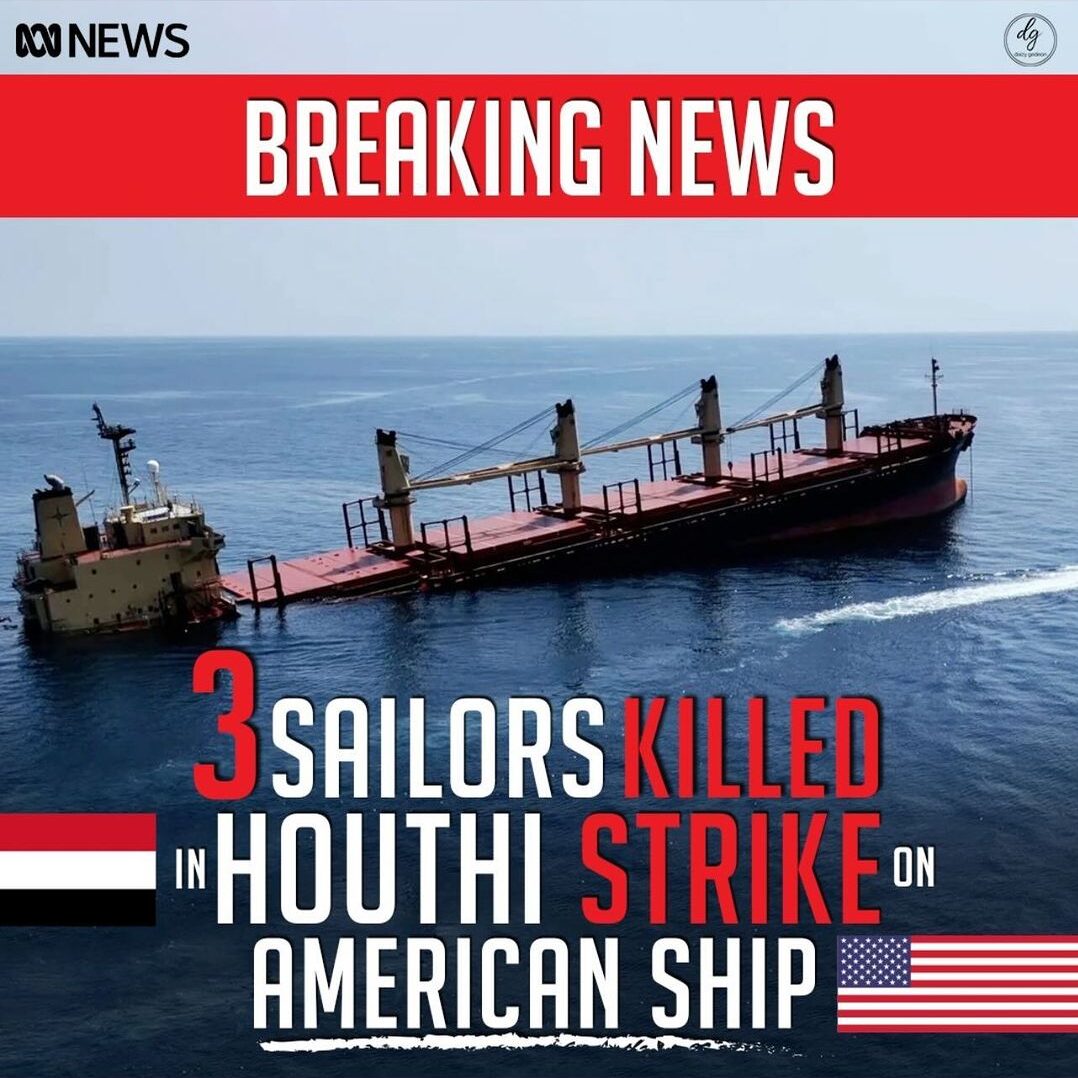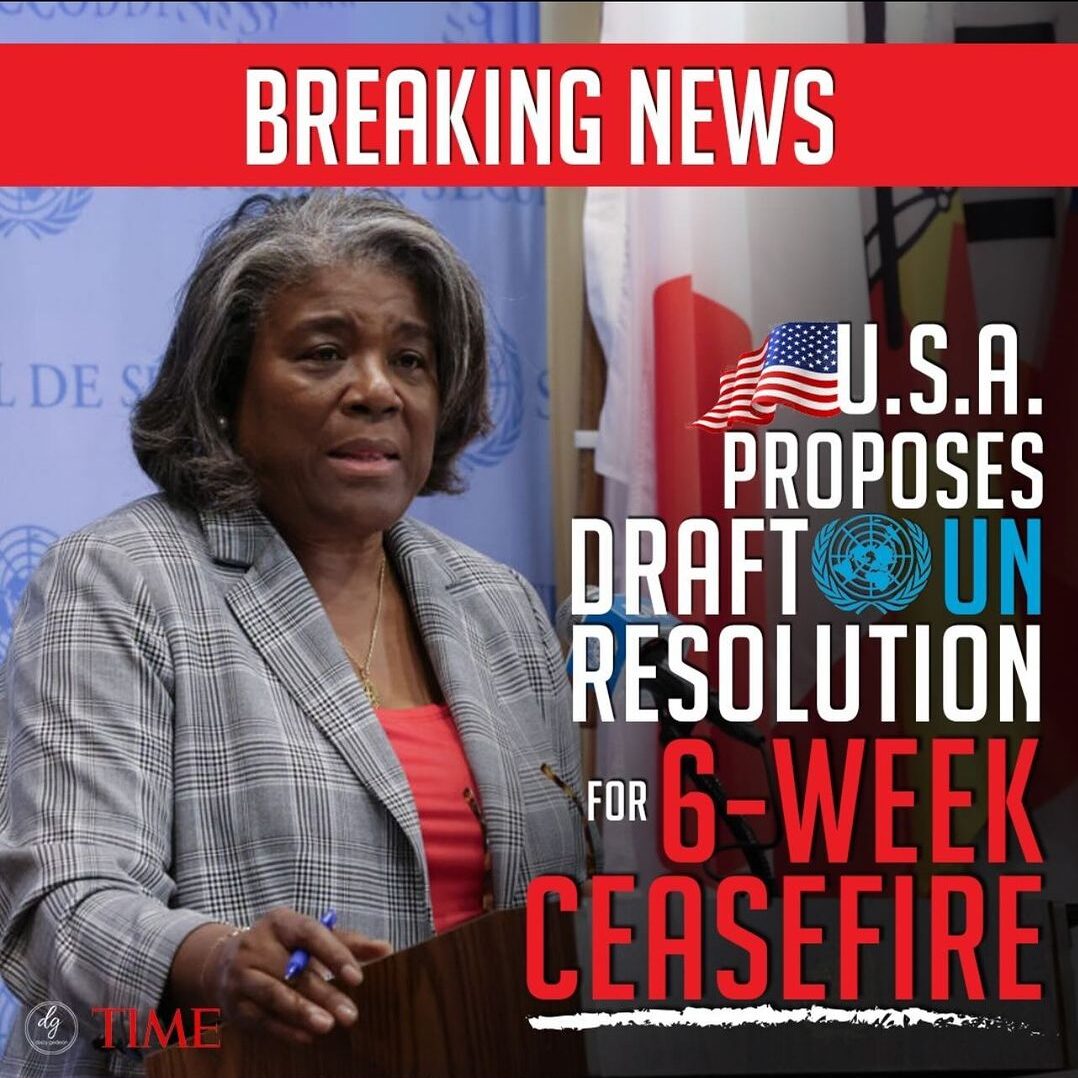BREAKING NEWS 3 SAILOR KILLED IN HOUTHI STRIKE ON AMERICAN SHIP
March 7, 2024
BREAKING!!
In the Houthi’s first DEADLY strike, three sailors were killed after a US ship was attacked in the Red Sea.
The Houthis have reiterated their dedication to continued attacks until the war in Gaza ends.
In response to this, US Spokesperson Matthew Miller reiterated the US effort to hold the Houthis accountable and called upon international efforts to do the same.
The US strategy is interesting. Instead of targeting the CAUSE of these strikes, the invasion of Gaza and the murder of more than 30,000 civilians and now the starvation of the remaining 2.3million population, America instead uses the same tacics used by the Zionists, MILITARY means, to subdue and silence the ONLY REAL RESISTANCE having any impact in the world!
END the occupation of Gaza.
STOP the KILLINGS!
And the Houthis will END their ATTACKS immediately and open up the Red Sea to maritime trade again.
IT””S THAT SIMPLE!
@abcnews_au
If you advocate for TRUTH & JUSTICE, SHARE to spread the knowledge.
#FreeGaza #PalestineSolidarity #GazaGenocide #UNRWA #EndGenocide #Palestine #ICJJustice #ceasefirenow #FreePalestine #Interfaith #StandWithUs #Truth #Palestine #Gaza #Humanrights #Israel #فلسطين #اسرائیل #غزة
English Script:
ABC Anchor: Three people have been killed in a Houthi missile strike on a commercial vessel in the Gulf of Aden. In the first deadly attack since the Iran backed group began its assaults on shipping in the region. The Barbados flagged ‘True Confidence’ was hit 54 nautical miles southwest of Yemen’s port of Aden. The UK’s maritime Trade Operations agency says the vessel has suffered damage and has been abandoned by its surviving crew members. It marks a major escalation in the rebel groups attacks on merchant ships in the Middle East, a campaign that was started in response to Israel’s war on Hamas in Gaza.
Yahya Sarea: The naval forces of the Yemeni Armed Forces carried out a targeting operation against the American ship, ‘True Confidence’, in the Gulf of Aden with a number of naval missiles. The strike was accurate and led to a fire breaking out on a vessel. The targeting operation came after the ship’s crew ignored warning messages from the Yemeni Naval Forces.
ABC Anchor: Well Yemen’s Houthi began their campaign in November by seizing the ‘Galaxy Leader’, a Bahamas flagged carrier. The group said it would target ships affiliated with Israel. Since then, dozens of foreign owned vessels have been fired upon. This week, a Liberian flagged Swiss owned container carrier was struck by a Houthi anti-ship missile. The Indian Navy responded to help extinguish a fire on board. No injuries have been reported from that incident. Airstrikes led by the US and UK and backed by Australia have failed to halt the attacks. Britain and the US have condemned what they called the Houthis reckless and indiscriminate campaign on ships transiting through the Red Sea.
Matthew Miller: The United States will continue to hold the Houthis accountable for their attacks, which have not just disrupted international commerce, not just disrupted the freedom of navigation in international waters and not just endangered seafarers, but now tragically killed a number of them. So we will continue to hold them accountable and we call on governments around the world to do the same.
ABC Anchor: Well, many shipping firms have already halted operations along the quickest and cheapest East-West trade route. The United Nations estimates traffic through it has fallen by 42% in the past two months. Instead of going direct from Singapore to Rotterdam via the Suez Canal, commercial cargo vessels are now taking the long way around the southern tip of Africa, adding weeks to the journey time and thousands to the cost of moving goods. Well, aside from the impact on global trade. There’s also the danger to the environment. There are fears of an ecological disaster after the sinking of a UK cargo ship in the Red Sea following a Houthi attack, the ‘Rubymar’, it went down carrying 21,000 tonnes of fertilizer. Scientists say that amount could trigger massive algal blooms, create dead zones for marine life and starve sensitive coral reefs of light. Any clean up and assessment of the damage has been complicated by the risk to salvage ships.






